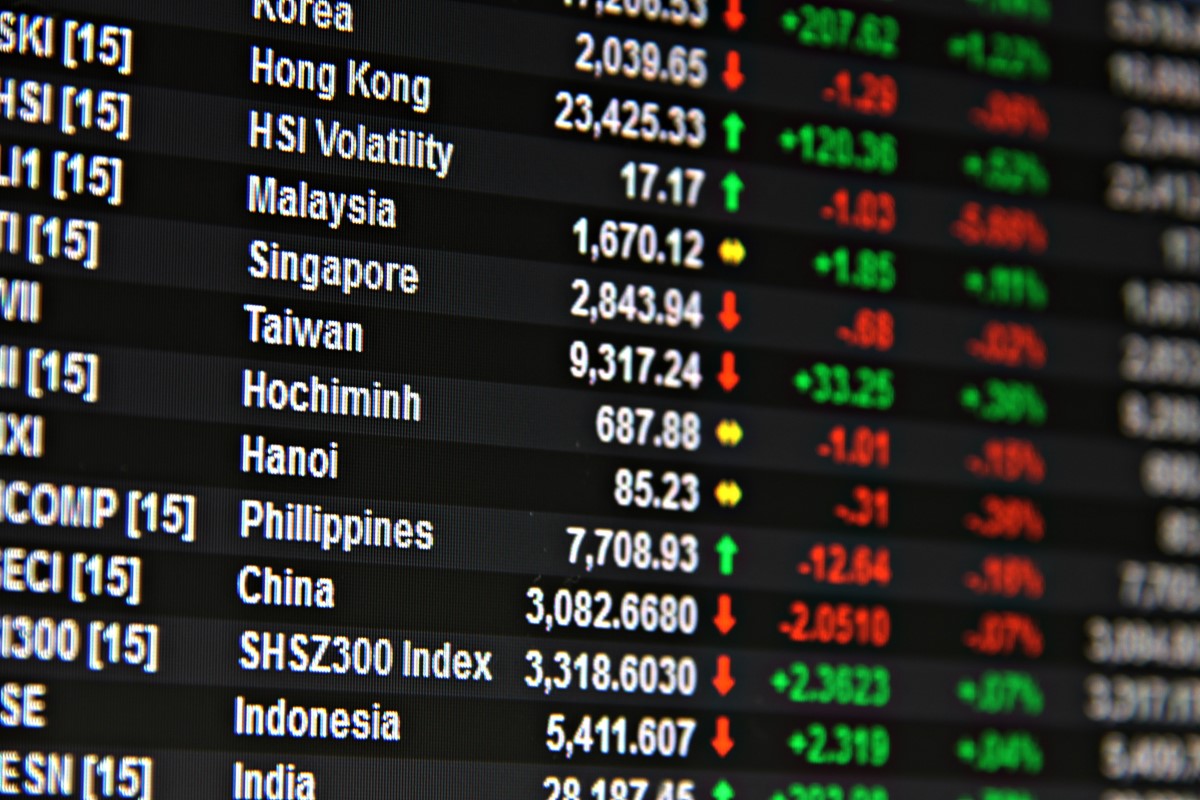At the beginning of 2022, market analysts and other stakeholders were expecting an economic rebound in Asia as the pandemic took a backseat. Instead, the region is experiencing a tumultuous year due to the Russia-Ukraine war. Asian equity markets have come under pressure in recent months as the war in Europe has disrupted supply chains, along with a lingering threat of high inflation and hawkish central banks. China, Asia’s largest economy, has gone under a lockdown again as Covid-19 cases have risen to levels previously seen at the beginning of the pandemic.
What’s happening in Asian equity markets?
A JP Morgan report found that most major equity markets around the world had consolidated in the first quarter of 2022. The ASEAN region bucked the trend to give 2.8% returns, however, China A shares saw a 14.1% decline, APAC ex-Japan was down 5.6%, South Korean equities fell 9.5% in the first three months of 2022, Taiwan equities erased 6.5% of investor wealth, while Indian stocks were down 1.8%.
China’s benchmark Shanghai Composite Index (CSI300) has declined 9.35% in the past three months and slipped 16.28% in 2022. Chinese stocks were among the worst performers in Asia in 2021 as well due to the real estate crisis which has also weighed on the financial sector.
The Hang Seng Index (HSI) has fallen 5.99% in the first three months of 2022, while declining 22.49% in the past year, as of March 31.
The MSCI AC Asia Index, which tracks large- and mid-caps across developed and emerging markets in Asia has fallen 13.49% year-to-date, as of April 29.
Economic uncertainty weighs on Asian equity
Inflation is hitting fresh highs in some Asian economies, and major central banks have realigned their monetary policies anticipating a negative impact on growth. The US Federal Reserve turned hawkish in March with its first interest rate hike of 25bps and has again tightened monetary policy in May with a 50bps increase in the key interest rate.
China is facing an unprecedented outbreak of the Omicron variant despite its zero-Covid policy. Fresh lockdowns in the country have eroded consumer confidence and multinationals are facing revenue losses, Yum China and Starbucks recently said. Previously, Apple too had said that lockdowns were hurting its supply chains and production had slowed. China’s producer inflation surged to 8.3% in March, higher than analyst expectation of 7.9% polled by Reuters. Consumer inflation too hit 1.5% during the month, above Reuter’s poll expectation of 1.2%.
In 2021, technology stocks in China took a hit as the government cracked down on tech giants. China’s close relationship with Russia also eroded investor confidence after Vladimir Putin declared war on Ukraine, causing an exodus of foreign money. As of March 31, MSCI China Tech 100 Index, which tracks large- and mid-cap tech stocks, declined 30.39% in 2021 and has fallen 21.59% in 2022 alone. The Hang Seng Tech Index fell sharply (down 7.2%) on March 14, its worst day since the global financial crisis, and has plunged 46.4% in the past year.
In broader Asia, the war has put upward pressure on commodity prices, especially oil, causing inflation worries as most Asian economies are net energy importers. Brent crude oil hit $130 a barrel on March 8 and was trading at $108.90 on May 4 at 3:51 PM BST. Right before Russia invaded Ukraine on February 24, crude oil prices were hovering around $95, as per data from MarketWatch.
Russia and Ukraine are major suppliers of certain commodities, and a short supply due to the war has pushed prices of commodities higher. This dearth of supply is being filled in by commodity producers in Asia, such as India — which is exporting its vast reserves of wheat.
The BlueStar Asia-Pacific Commodities Index, which tracks commodity miners and agriculture producers in Southeast Asia, Japan, India, China, Japan, Australia and New Zealand, has given 3.68% returns in 2022, while also posting total returns of 28.56% in the past year. Meanwhile, Commodity Research Bureau (CRB) Index, which tracks global commodity markets, has risen 54.22% in the past year, as per data from Trading Economics.
What’s next for Asia?
“Slower growth and rising prices, coupled with the challenges of war, infection and tightening financial conditions, will exacerbate the difficult policy trade-off between supporting recovery and containing inflation and debt,” IMF said in a blog post. The agency says rising prices of commodities will increase import costs for Asian countries – reducing growth, weakening currency, and worsening current account balances.
The IMF in a table shows the expected impact of the trifecta – war, inflation, and Covid-19 – on the growth of Asian economies.
However, JP Morgan Asset Management says it still expects Asia to be in an expansion mode. “The expected return for equities is still stronger than fixed income in absolute terms, but the difference could be less obvious taking volatility into account,” JP Morgan said in a report.
Regional inflation in Asia is expected to climb to 3.7% in 2022, compared to 2.5% in 2021, said Asian Development Bank (ADB). “The current Omicron outbreaks in the People’s Republic of China could endanger regional growth and supply chains, and more deadly variants could still emerge. Scarring from the pandemic poses significant medium-term risks, including learning losses from continued school closures that could further exacerbate economic inequality,” said ADB Chief Economist Albert Park.










 Australia
Australia China
China India
India Indonesia
Indonesia Japan
Japan Malaysia
Malaysia Philippines
Philippines Singapore
Singapore South Korea
South Korea Taiwan
Taiwan Thailand
Thailand Vietnam
Vietnam Germany
Germany Hong Kong
Hong Kong USA
USA Switzerland
Switzerland Singapore
Singapore
 United Kingdom
United Kingdom









